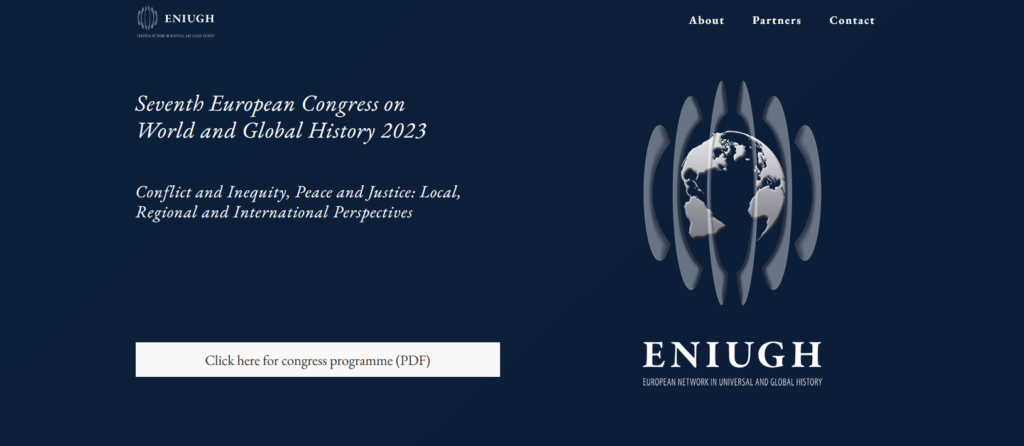About the Blog
This blog is dedicated to the research and outreach activities of the Chair of Contemporary History (Comparative Dictatorship, Violence and Genocide Studies) and its staff, headed by Prof. Dr. Kerstin von Lingen. The aim is to make the diverse research foci, including migration, global and legal history and digital humanities, as well as current projects and events accessible to a broader public.


Events
Events in the field of historical-culture and historical studies, such as public lectures, book presentations and film evenings, take place at regular intervals and are organised by the professorship and its staff. Important dates, announcements and reports of these events can be found in this section.
Research
This rubric is dedicated to the research activities of the professorship and those of its scholars and fellows. In addition to the presentation of ongoing research projects, scientific essays as well as workshop and conference reports can be found in this section. At the moment, the main focus lies on the projects “GLORE” and “Negotiating Migration Regimes“.


Public History
In addition to their scientific research activities, the scientists of the Chair and those associated with it are also intensively engaged in communicating the resulting findings to a broad public. This ranges from podcasts and film series to (digital) exhibitions. Fellows of the GLORE project are given the opportunity to develop a public history project during their stay. The results of this broad range of public history initiatives can be found in this section.
Archives and Sources
In order to be able to illustrate one’s own research with concrete sources and collections from practice and also to offer suggestions and assistance to other scholars, this section is dedicated to presenting selected archives, their collections and particularly exciting historical sources at regular intervals.


Alma Rosé-Preis
Der Alma-Rosé-Preis zeichnet wissenschaftliche Qualifikationsarbeiten an deutschsprachigen Universitäten aus, die sich mit der Geschichte des Nationalsozialismus, den während des NS-Regimes beschlagnahmten Kulturgütern, sowie den Folgen der Entziehung (einschließlich der Nachkriegsjustiz) befassen, wobei der Schwerpunkt auf der Opfer- und Verfolgungsgeschichte liegt. Die ausgezeichneten Wissenschaftlerinnen und Wissenschaftler und ihre Arbeiten werden in dieser Rubrik vorgestellt.
Cinecittà – A refugee community in postwar Rome
Cinecittà Camp, located in Rome, Italy, was a notable post-World War II displaced persons (DP) camp. Established on the grounds of the famous Cinecittà film studios, which had been damaged during the war, the camp provided temporary shelter for thousands of refugees and displaced persons, including Holocaust survivors and those uprooted by the conflict and shifting European borders. In 1947, serving as a transit and repatriation camp, it had aa turnover of about 3000 to 4000 persons monthly.


Concentration Camp Memorial Flossenbürg – Death Marches
In the summer term of 2024, students from the University of Vienna worked with the Flossenbürg Memorial on the topic of death marches with the aim of making the life stories behind the anonymous numbers of victims and the mechanisms of violence in the final phase of the German Reich visible.
Maly Trostinec – Digital Remembrance
Maly Trostinec is a small village located just a few kilometers southeast of the Belarusian capital Minsk. Its inconspicuous surroundings developed into one of the largest Nazi extermination sites on the territory of the former Soviet Union after the German invasion of the Soviet Union in 1941, where many Viennese Jews were murdered.


Transit – The Podcast about Migration History
As part of the podcast “Transit” initiated at the Institute of Contemporary History, Franziska Maria Lamp and Philipp Strobl talk to experts about core topics in migration history and migration policy. In the podcast series, expertise on migration history is presented in the form of clear interviews and made available on popular podcast platforms, such as Spotify, Apple Podcasts, and Podbean, as well as on the project page.
